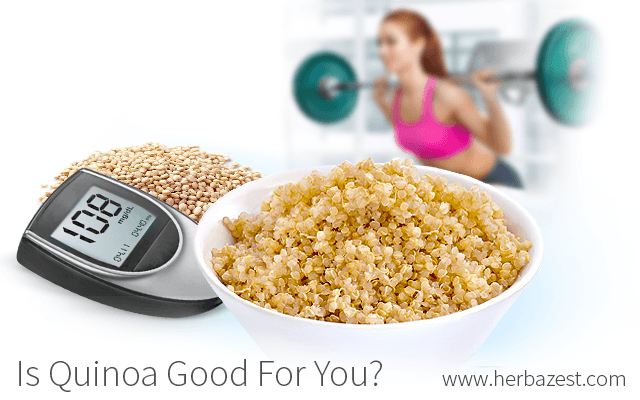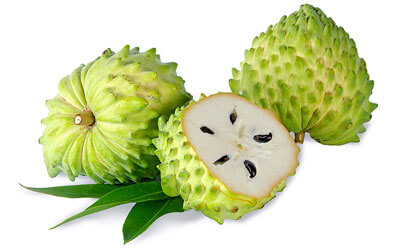Native to the Andean region of South America, quinoa has grown in popularity in other parts of the world as superfood that offers many nutritional advantages over other grains and cereals. While you may already know that quinoa is good for you, it might also be helpful to understand the specific reasons why this pseudocereal is so beneficial and deserving of incorporation into your diet. So, why is quinoa good for you? Keep reading to find out.
Reasons Why Quinoa Is Good for You
As part of a healthy diet, quinoa is good for you for the following reasons:
Quinoa is an excellent source of high-quality fatty acids in comparison to other cereals and grains. In fact, quinoa's total lipid content is 14.5%, with approximately 70 - 89% of that value being unsaturated fat.1 There is a strong link between unsaturated fat consumption and reduced inflammation and type 2 diabetes risk. In addition, quinoa's soluble and insoluble fiber is necessary for normal bodily functions.
Quinoa is a great plant-based source of complete protein. One cup (185 grams) of cooked quinoa has approximately 8 grams of protein.2 In fact, quinoa's protein levels are much higher than those of other cereals and grains, such as wheat, rice, and maize. Moreover, the proportion of protein that is absorbed and incorporated into the body (biological value) is significantly high at 73% (and comparable to that of beef, which is 74%).3
Quinoa is a complete protein, meaning that it contains all nine essential amino acids that they body cannot make, but needs for to maintain its functions. Moreover, quinoa's amino acid content is unique because it includes especially high levels of lysine, an amino acid that is deficient in most grains, and methionine, an amino acid that is poor in most legumes.
Quinoa ranks low on the glycemic index (GI), the scale that grades carbohydrates according to their effect on blood sugar levels. Having a glycemic index score of 53 means that eating quinoa is not likely ot cause sudden sugar spikes.4 This is important because low-GI diets help improve blood glucose levels and aid weight management.
- Quinoa is naturally free of gluten. With an impressive nutritional profile and no gluten, quinoa is a great option for people with celiac disease and gluten intolerance as well as an attractive alternative to wheat.
So, why is quinoa good for you exactly? Quinoa's health benefits are the result of a unique combination of essential amino acids, high-quality fats, low GI score, and lack of gluten. On top of that, quinoa can deliciously complement both savory and sweet dishes. Overall, it is an excellent source of nutrition and fully worth being added to your daily meals.
Sources
- Circulation, Major dietary protein sources and risk of coronary heart disease in women, 2010
- Food Reviews International, Nutritional Value and Use of the Andean Crops Quinoa (Chenopodium quinoa) and Kaniwa (Chenopodium pallidicaule), 2003
- Food Science and Technology, Use of cereal bars with quinoa (Chenopodium quinoa W.) to reduce risk factors related to cardiovascular diseases, 2012
- Harvard University, T.H. Chan School of Public Health, Protein
- Journal of Nutrition and Food Sciences, Quinoa (Chenopodium quinoa Willd), from Nutritional Value to Potential Health Benefits: An Integrative Review, 2016
- FAOSTAT, Quinoa | Quinoa, uncooked
Footnotes:
- Journal of Nutrition & Food Scienes. (2016). Quinoa (Chenopodium quinoa Willd), from Nutritional Value to Potential Health Benefits: An Integrative Review. Retrieved September 21, 2021 from https://www.longdom.org/open-access/quinoa-chenopodium-quinoa-willd-from-nutritional-value-to-potential-health-benefits-an-integrative-review-2155-9600-1000497.pdf
- Harvard T.H Chan. (n.d.). Quinoa. Retrieved September 20, 2021 from https://www.hsph.harvard.edu/nutritionsource/food-features/quinoa/
- Journal of Nutrition & Food Sciences. (2016). Quinoa (Chenopodium quinoa Willd), from Nutritional Value to Potential Health Benefits: An Integrative Review. Retrieved September 20, 2021 from https://www.longdom.org/open-access/quinoa-chenopodium-quinoa-willd-from-nutritional-value-to-potential-health-benefits-an-integrative-review-2155-9600-1000497.pdf
- Defeat Diabetes Foundation. (n.d.). Quinoa. Retrieved September 20, 2021 from https://defeatdiabetes.org/resources/healthful-eating/whole-grains/quinoa/




